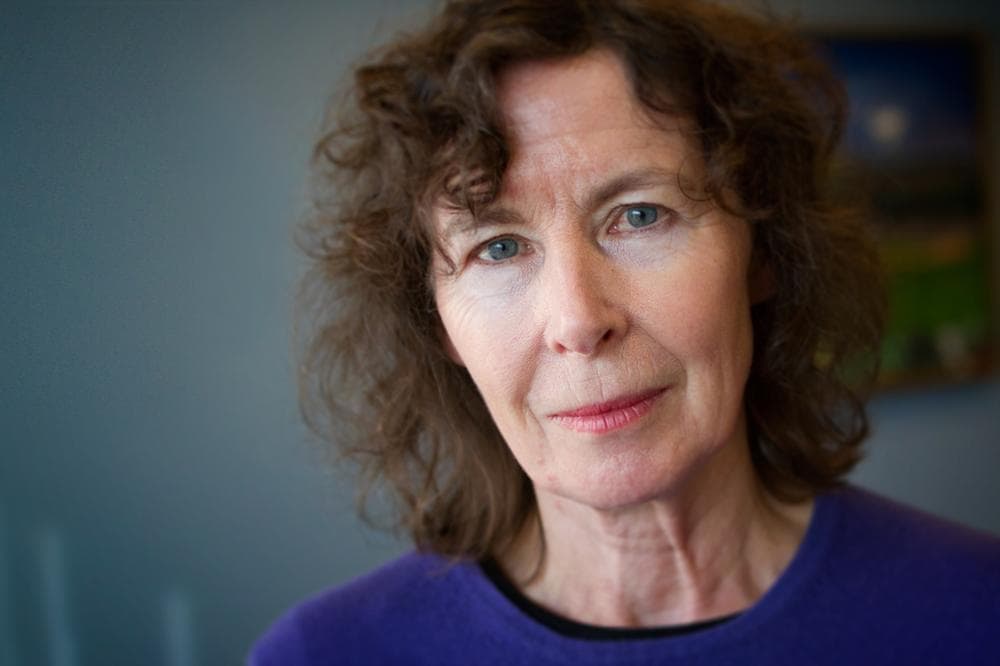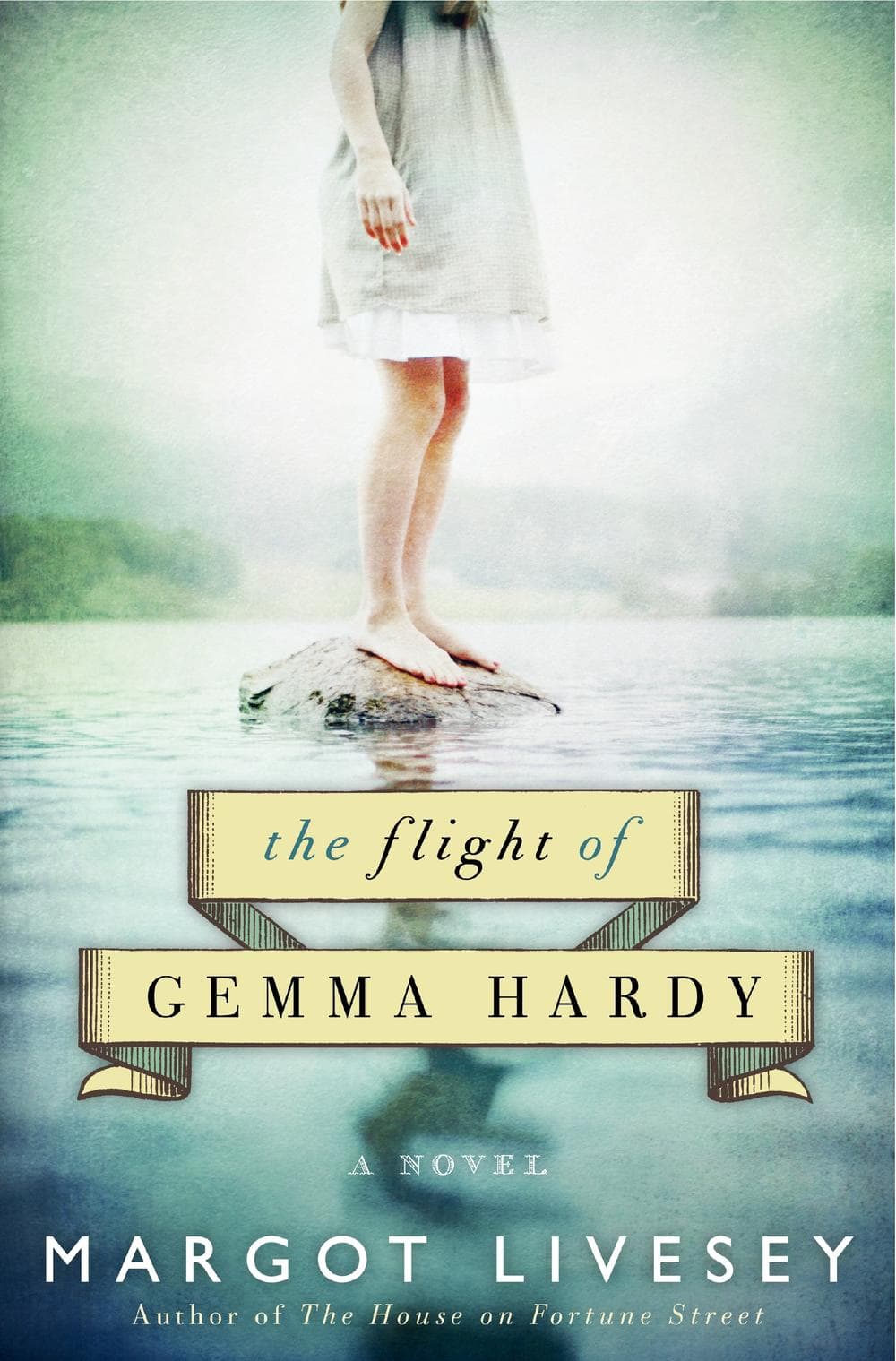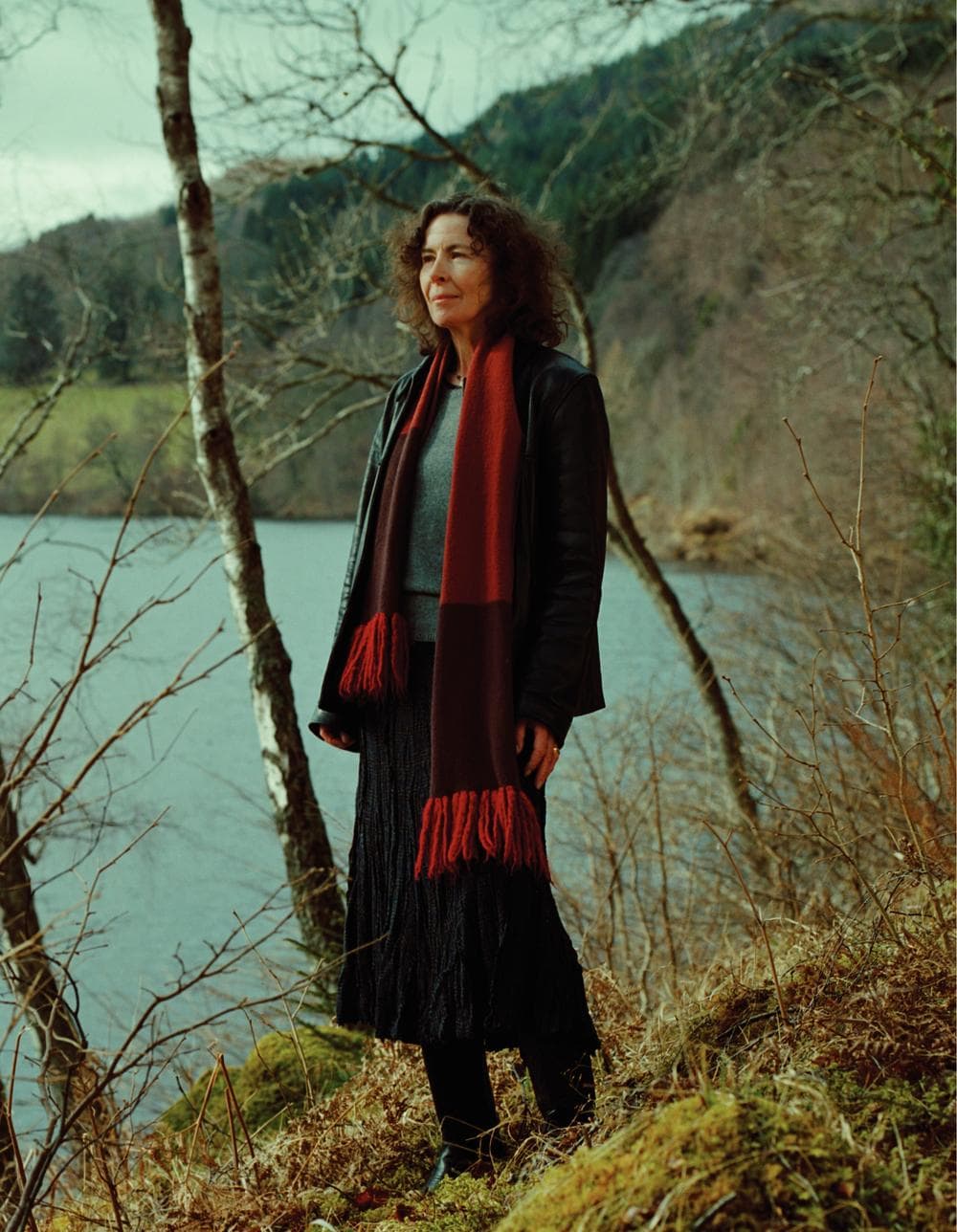Advertisement
Margot Livesey Mines Scottish Roots And 'Jane Eyre' For New Novel
Resume
Author Margot Livesey read Charlotte Bronte's "Jane Eyre" when she was a nine-year-old in Scotland and identified strongly with the orphan Jane.
Like Jane Eyre, Livesey went to boarding school at a young age and felt like an outsider: She was poorer than most of her classmates and she was the target of bullies. Now Livesey pays tribute to Jane Eyre, but also incorporates some of her own history in her book "The Flight of Gemma Hardy."
In the novel, Gemma is the child of an Icelandic father and Scottish mother who is orphaned early, spurned by her aunt, attends an unwelcoming school, and eventually meets and falls in love with a much older man, whom she eventually leaves because of a terrible secret.
But Gemma Hardy lives in mid-20th-century Scotland, not 19th-century England and her choices and options are very different from those of Jane Eyre.
Livesey tells us that at first, she was appalled at the idea of writing another version of Bronte's book, but then she realized that the story of the orphan appeals to a universal audience. Livesey not only wanted to pay tribute to Bronte's work but also to meditate on how women's lives have changed (and not changed) since Bronte was writing.
An 'Exile's Novel'
Livesey also calls "The Flight of Gemma Hardy" an "exile's novel--" Livesey has spent most of the last thirty years living in the United States, and she says the book allowed her to reconnect with Scotland, in that it is "infused with my memories of the landscapes where I grew up and of a certain longing for those landscapes."
Book Excerpt: The Flight Of Gemma Hardy
By: Margot Livesey
Chapter one
 We did not go for a walk on the first day of the year. The Christ¬mas snow had melted, and rain had been falling since dawn, darken¬ing the shrubbery and muddying the grass, but that would not have stopped my aunt from dispatching us. She believed in the benefits of fresh air for children in all weather. Later, I understood, she also en¬joyed the peace and quiet of our absence. No, the cause of our not walking was my cousin Will, who claimed his cold was too severe to leave the sitting-room sofa, but not so bad that he couldn’t play cards. His sister Louise, he insisted, must stay behind for a game of racing demon.
We did not go for a walk on the first day of the year. The Christ¬mas snow had melted, and rain had been falling since dawn, darken¬ing the shrubbery and muddying the grass, but that would not have stopped my aunt from dispatching us. She believed in the benefits of fresh air for children in all weather. Later, I understood, she also en¬joyed the peace and quiet of our absence. No, the cause of our not walking was my cousin Will, who claimed his cold was too severe to leave the sitting-room sofa, but not so bad that he couldn’t play cards. His sister Louise, he insisted, must stay behind for a game of racing demon.I overheard these negotiations from the corridor where I loitered, holding my aunt’s black shoes, freshly polished, one in each hand.
“In that case,” said my aunt, “Veronica and Gemma can walk to the farm to collect the eggs.”
“Oh, must I, Mum?” said Veronica. “She’s such a—”
The door to my uncle’s study was only a few feet away, across the cor¬ridor. Hastily I opened it, stepped inside, and shut out whatever came next. Not long ago this room had been the centre of the house, a place brightened by my uncle’s energy, made tranquil by his concentration as he worked on his sermons, but last February, skating alone on the river at dusk, he had fallen through the ice, and now I was the only one who spent any time here, or who seemed to miss him. Just inside the door was a pyramid of cardboard boxes, the remains of my aunt’s several recent purchases. But beyond the boxes the room was as he had left it. His pen still lay on the desk beside the sermon he’d been preparing. At the top of the page he had written: “Sunday, 16 February A.D. 1958. No man is an island.” A pile of books still sat on the floor next to his chair; the dead coals of his last fire crumbled in the grate. To my childish fancy, the room mourned him in a way that no member of his family did, certainly not my aunt, who dined out two or three times a week, played bridge for small sums of money, and since the season started, rode to hounds whenever she could. At breakfast that morning, she had said I must no longer call her Aunt but ma’am, like Betty the housemaid.
Setting the shoes on the floor and trying not to imagine how Ve¬ronica had finished her sentence—such a copycat? such a moron?—I read over my uncle’s opening paragraph. “We each begin as an island, but we soon build bridges. Even the most solitary person has, perhaps without knowing it, a causeway, a cable, a line of stepping-stones, con¬necting him or her to others, allowing for the possibility of communi¬cation and affection.” As I read the familiar phrases I pictured myself as a small, verdant island in a grey sea; when the tide went out, a line of rocks surfaced, joining me to another island, or the mainland. The image bore no relation to my present life—neither my aunt nor my cousins wanted any connection with me—but I cherished the hope that one day my uncle’s words would prove true. Someone would ap¬pear at the other end of the causeway.

I stepped over to the bookcase and pulled down one of my favour¬ite books: Birds of the World. Each page showed a bird in its natural habitat—a puffin with its fat, gaudy beak, peering out of a burrow, a lyre-bird spreading its tail beneath a leafy tree—accompanied by a description. Usually I read curled in the armchair beside the fire, conjuring an imaginary warmth from the cold embers, but today, not wanting to reveal my presence by turning on the light, I settled myself on the window-seat. Pulling the heavy green curtain around me, I flew away into the pictures.
Long before Veronica’s remark, even before my uncle’s death, I would have said that the only thing I shared with my oldest cousin was an address: Yew House, Strathmuir, Perthshire, Scotland. At fourteen, Will was a thick-necked, thick-thighed boy who for the most part ig¬nored me. Sometimes, when he came upon me in the corridor or the kitchen, an expression of such frank surprise erupted across his face that I could only assume he had forgotten who I was and was trying to guess. A servant? Too small. A burglar? Too noisy. A guest? Too badly dressed. I had seen the same expression on my uncle’s face when he watched Will play football, as if he were wondering how this hulking ruffian could be his son. But their blue eyes and long-lobed ears left no doubt of their kinship. My uncle had once shown me a photograph of himself with his brother, Ian, who had died in his early twenties, and my mother, Agnes, who had died in her late twenties. “Thank good¬ness she was spared the Hardy ears,” he had said.
With Louise and Veronica, however, I had a history of affection. Un¬til last summer the three of us had attended the village school, walk¬ing the mile back and forth together. Although Louise was two years older, I had often helped her with her arithmetic homework. I had also endeared myself by giving her my turns on Ginger, the family pony, an act of pure self-interest that she took as a favour. But in July my aunt had announced that her daughters, like their brother, would go to school in the nearby town of Perth. Suddenly they had other friends, and I walked to school alone. Meanwhile the dreaded Ginger had been sold, and Louise now had her own horse. She had tried to convert me to her equine cult by lending me Black Beauty and National Velvet. So long as I was reading I understood her enthusiasm, but as soon as I was in the presence of an actual horse, all teeth and hooves and dusty hair, I was once again baffled.
As for Veronica, who was only six months my senior, she and I had been good friends until she too developed alien passions. Now she was no longer interested in playing pirates, or staging battles be¬tween the Romans and the Scots. All her attention was focused on fashion. She spent hours studying her mother’s magazines and going through her wardrobe. She refused to wear green with blue, brown with black. Any violation of her aesthetic caused her deep distress. When my aunt bought a suit she didn’t approve of, Veronica retired to bed for two days; my appearance, in her sister’s cast-offs, was a kind of torture. Her father had teased her about these preoccupa¬tions in a way that held them in check. Without him, she too had become a fanatic.
Despite these changes I had, until the previous week, believed that Louise and Veronica were my friends, but the events of Christmas Eve had forced me to reconsider. For as long as I could remember, the three of us had spent that afternoon running in and out of each other’s bedrooms, getting ready for the party given by the owners of the local distillery. Last year I had drunk too much of the children’s punch and won a game that involved passing an orange from person to person without using your hands; I had been looking forward to defending my victory. But on the morning of the twenty-fourth, when I had asked Louise if I could borrow her blue dress again, my aunt had paused in buttering her toast.
“What do you need a dress for, Gemma?”
“It’s the Buchanans’ party tonight. Don’t you remember, Aunt?”
I jumped up to retrieve the invitation from the mantelpiece where it had stood for several weeks and held it out to her. “Yes,” said my aunt, “and who is this addressed to? The Hardy family. That means Will and the girls and me.” She reached for the marmalade. “You’ll stay here and help Mrs. Marsden. You can start by doing the washing-up.”
“Anyway I won’t lend you the dress,” Louise added. “You’d just spill something on it.”
If she had sounded angry I would have argued, but like her mother, she spoke as if I were barely worth the air that carried her words. With¬out further ado the two of them turned to talking about where they would ride that day. Abandoning my toast, I marched out of the room.
Mrs. Marsden, the housekeeper, was the only member of the house¬hold whose behaviour towards me had not changed after my uncle’s death. She continued to treat me with the same briskness she had al¬ways shown. She had arrived in the village the year after I did and rented the cottage on the far side of the paddock. Then my aunt had an operation—she can’t have any more babies, Louise announced cheerfully—and during her convalescence Mrs. Marsden had become a fixture at Yew House. She had grown up in the Orkneys and could, sometimes, be lured into telling stories about the Second World War, or seals and mermaids. Helping her, I told myself, was infinitely prefer¬able to being a pariah at the party.
From THE FLIGHT OF GEMMA HARDY by MARGOT LIVESEY. Copyright 2012 by MARGOT LIVESEY. Excerpted with permission by HARPER, an imprint of HARPERCOLLINS PUBLISHERS
This segment aired on February 6, 2012.